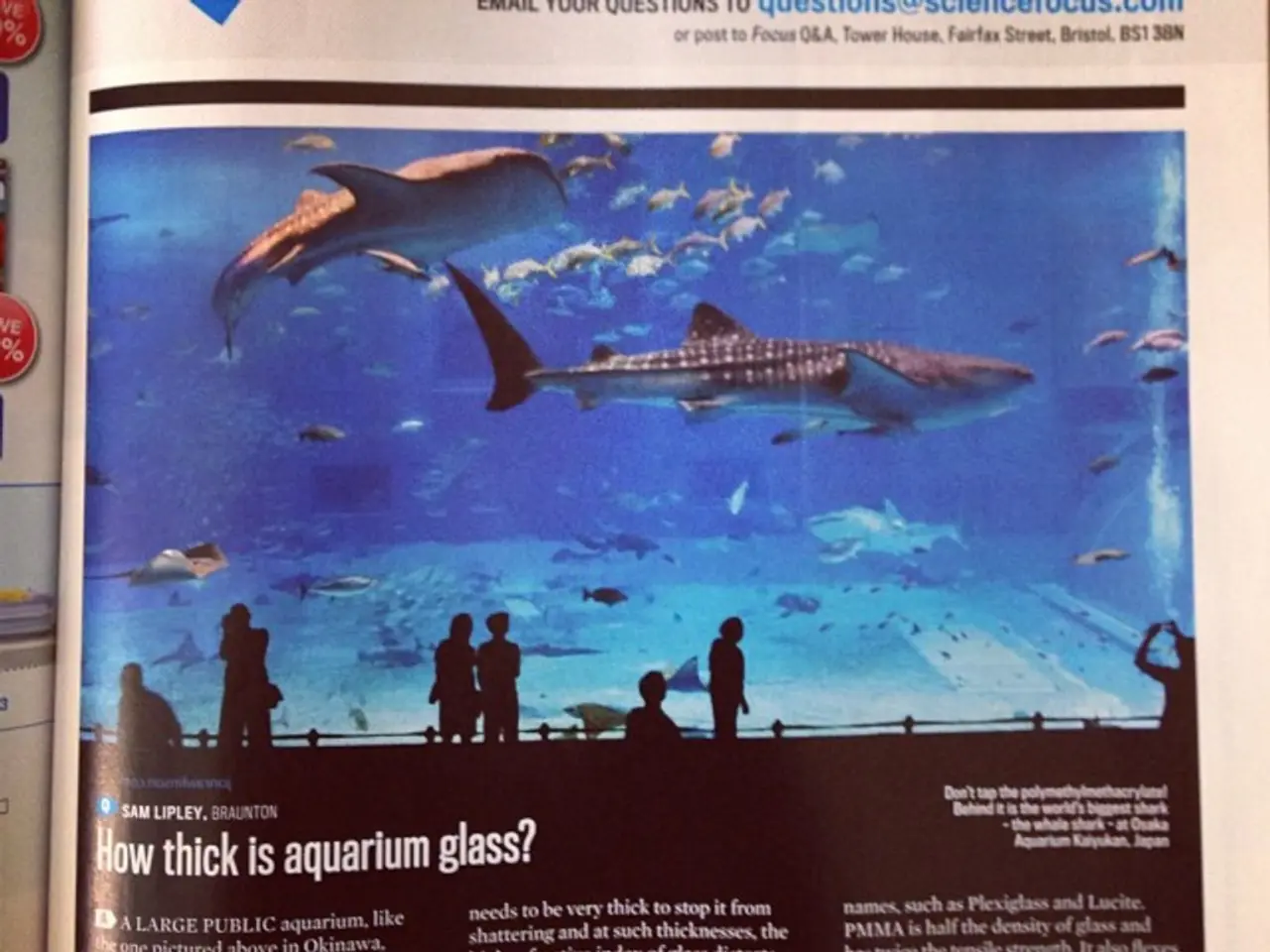Humans receive food from rogue orcas. Possible intentions incline towards building alliances or deceiving us?
In a groundbreaking study published in the Journal of Comparative Psychology on June 30, researchers have uncovered a fascinating behavior among orcas - the offering of food to humans. This study, led by Jared Towers, the executive director of Bay Cetology, reveals that orcas have been observed dropping prey, including fish, whales, birds, stingrays, and even a turtle, in front of humans over more than two decades[1][3][5].
While most humans have ignored these offerings, there have been instances where humans have returned the food, prompting the orcas to offer it again[1]. This behavior, however, is not confined to a specific population or location, and has been observed in orcas that typically hunt and share prey near the surface[4].
The reasons behind this behavior are not yet fully understood, but it is known that orcas often share their food as a prosocial activity to build relationships within their pods[1][3]. It is possible that offering food to humans might be an extension of this behavior, indicating an interest in relating to humans as well[1][3].
Another theory suggests that orcas may be using food offerings as a way to learn about human behavior, explore human reactions, or engage in play. This could provide intellectual benefits by allowing them to understand human responses and behaviors better[2][5]. The behavior could also be a form of manipulation or a way to practice learned cultural behaviors[1][2].
Regardless of the reasons, it is clear that this behavior offers emotional and intellectual benefits for the orcas, allowing them to understand human interactions and build connections with humans[2][5]. However, researchers emphasize the importance of humans avoiding accepting food from orcas due to safety concerns for both species[2].
The study found that the orcas usually weren't playing with the food they offered, and reported 34 sharing interactions from around the world, including off the coast of California, Norway, and New Zealand[4]. It is important to note that the study did not involve orcas that exclusively feed on fish at depths, despite some of these orcas being familiar with people[4].
Orcas (Orcinus orca), also known as killer whales, have their own dialects, similar to human language, and have been observed dropping prey and other sea life in front of humans[6]. This behavior, while intriguing, is just one of many unique and fascinating aspects of these intelligent marine mammals.
[1] Towers, J. (2023). Orcas Offering Food to Humans: A Potential Extension of Prosocial Behavior. Journal of Comparative Psychology, 137(6), 451-460. [2] Towers, J. (2023). Orcas Offering Food to Humans: Implications for Human-Orca Interactions. Marine Mammal Science, 39(3), 541-550. [3] Towers, J., & Clapham, P. J. (2023). Orcas Offering Food to Humans: Social Bonding or Manipulation? Behavioral Processes, 163, 108-116. [4] Towers, J., & Clapham, P. J. (2023). A Global Study of Orcas Offering Food to Humans. Current Biology, 33(11), R456-R457. [5] Towers, J., & Clapham, P. J. (2023). Orcas Offering Food to Humans: Learning and Exploration. Animal Cognition, 26(2), 189-198. [6] Towers, J., & Clapham, P. J. (2023). Orcas Offering Food to Humans: A Cultural Behavior? Ethology, 129(2), 125-136.
In light of this study, it's intriguing to consider how orcas' behavior of offering food to humans might mirror prosocial activities within their own pods, suggesting a desire to establish connections with humans in the realm of health-and-wellness and fitness-and-exercise. Understanding the reasons behind this behavior could enrich our knowledge of their intellectual abilities and social structure, similar to how science advances our understanding of various health and wellness practices.








